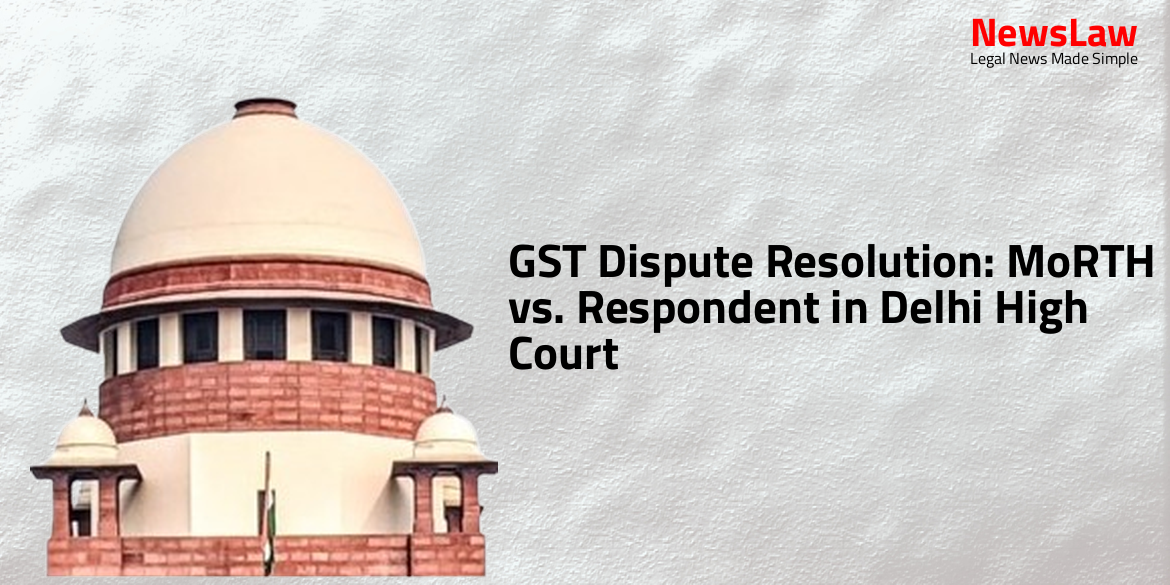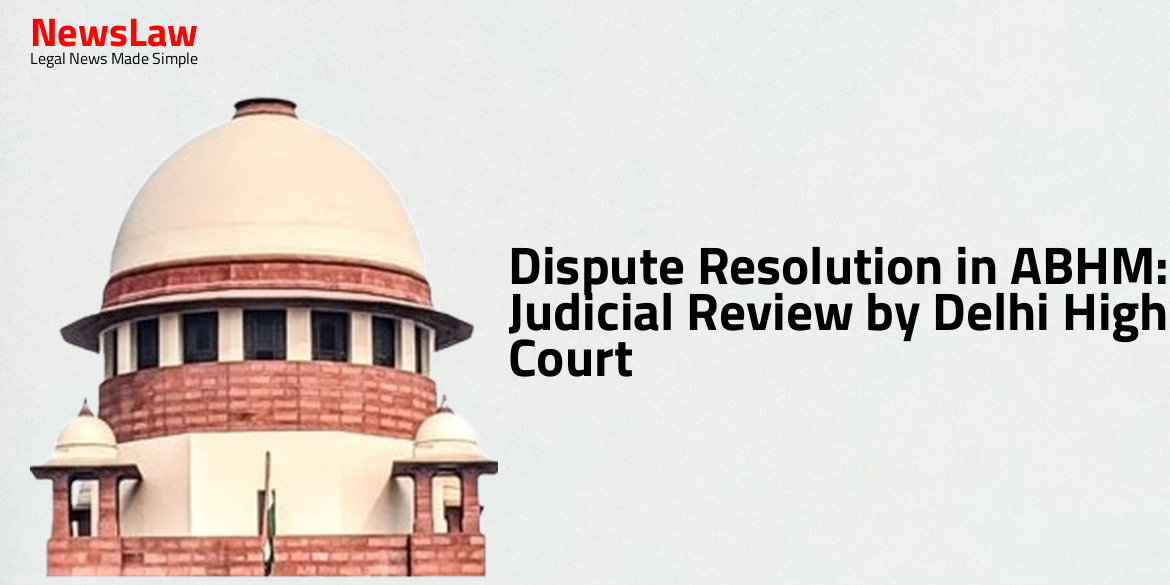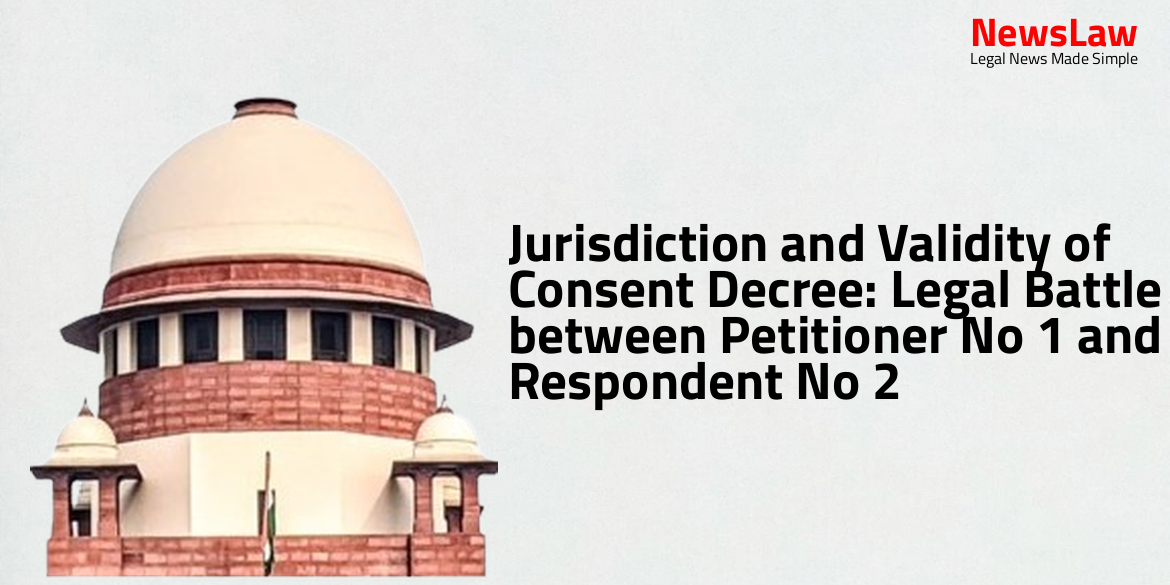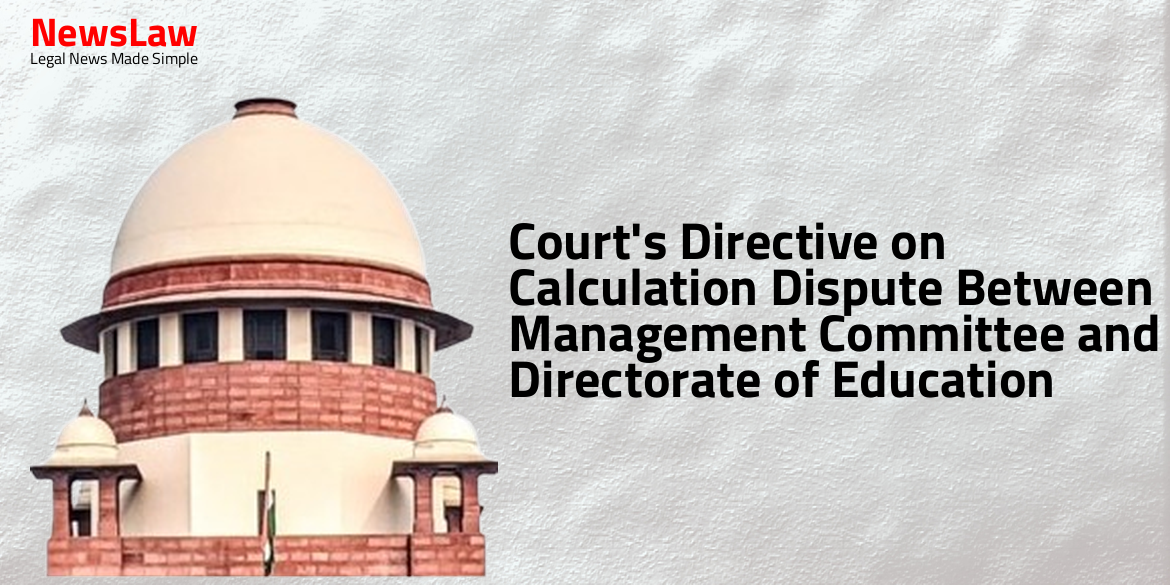In a significant case before the Delhi High Court, the dispute over GST payments between the Ministry of Road Transport and Highways (MoRTH) and the respondent has been settled through arbitration. The Court’s ruling sheds light on the importance of adhering to contractual agreements and the process of resolving disputes through non-adversarial means. Let’s delve into the details of this landmark judgment and its impact on future arbitration cases.
Facts
- Ms. Sharma argues that the Arbitral Tribunal made a manifest error by relying on the SOR of 2017, which excluded GST.
- Ms. Sharma contends that the Contract, based on the SOR of 2016, stated that the quoted rates by the contractor would include all taxes.
- Ms. Sharma points out that Article 26 of the Contract specifies that disputes should undergo pre-arbitral remedies before arbitration, making the disputes non-arbitrable.
- MoRTH filed a petition under Section 34 of the Arbitration and Conciliation Act, 1996, challenging the arbitral award resulting from an agreement for road rehabilitation in Madhya Pradesh.
- The respondent claimed entitlement to GST on the contract amount, which MoRTH allegedly did not pay.
- After arbitration, the award was issued, leading to objections raised by Ms. Sharma regarding the pre-arbitration conciliation process.
- Respondent’s bid for ₹65.62 crores was substantially lower
- Letter of Award issued on 05.12.2017
Issue
- The issue to be adjudicated by the Arbitral Tribunal was whether the contract amount quoted by the respondent was exclusive of GST or inclusive of GST.
- MoRTH claimed that the contract amount of ₹65.62 crores quoted by the respondent was inclusive of GST, while the respondent claimed it was exclusive of GST.
- The challenge to the rejection of the preliminary objection raised by MoRTH was rejected by the Tribunal.
- The Tribunal proceeded to consider the merits of the claim regarding the respondent’s assertion for GST.
Analysis
- The Arbitral Tribunal rejected the petitioner’s application under Section 16 of the Act contending that the dispute was non-arbitrable due to non-compliance with pre-arbitration conciliation proceedings.
- The Tribunal’s reasoning for rejecting the submission was based on Article 26 of the agreement which stated that any dispute must first be attempted to be resolved amicably through the conciliation procedure outlined in Clause 26.2.
- The conciliation process involves the Authority’s Engineer or a mutually agreed-upon Conciliator to mediate and assist the Parties in reaching an amicable settlement.
- The clause emphasizes the importance of attempting to resolve disputes through conciliation before resorting to arbitration, highlighting the commitment to amicable settlement between the Parties.
- The Arbitral Tribunal’s decision to uphold the conciliation process as a prerequisite for arbitration demonstrates the adherence to the contractual agreement and the intention to resolve disputes through non-adversarial means.
- MoRTH had forfeited its right to object on the grounds raised by the claimant regarding GST payments.
- The tender documents were based on the revised SOR issued in 2017, which excluded GST from the rates quoted.
- The Chief Engineer of MPRDC clarified that the contract amount was exclusive of GST.
- The Arbitral Tribunal concluded that the rates quoted were without GST, as confirmed by the Chief Engineer.
- The GST payment liability did not exist for the claimant as per the contract terms and SOR 2017.
- The objections raised by the claimant were deemed unsustainable as they were addressed before the High Court and the Arbitral Tribunal.
- The Contract Amount specifically stated that it was exclusive of GST.
- The dispute was to be settled by arbitration in accordance with the rules of SAROD, even if conciliation proceedings were not entered into by the parties.
- No case for interference with the award on merits found
- Facts do not warrant any intervention in the award on merits
Decision
- MoRTH’s counter claim was only for costs and was rejected by the Arbitral Tribunal.
- All pending applications have been disposed of.
- The only substantive claim before the Arbitral Tribunal was for costs, in addition to claims for interest and costs.
- No other issue requires adjudication.
Case Title: MINISTRY OF ROAD TRANSPORT AND HIGHWAYS Vs. M/S A K SHIVHARE INFRASTRUCTURE PVT LTD (2024:DHC:3687)
Case Number: O.M.P. (COMM)-202/2024



